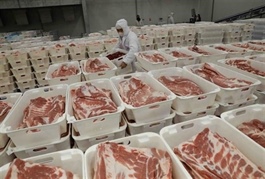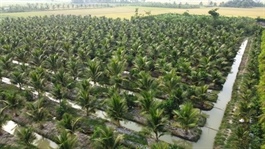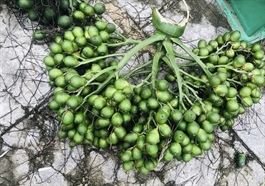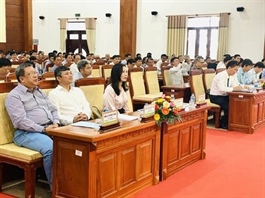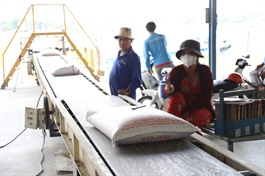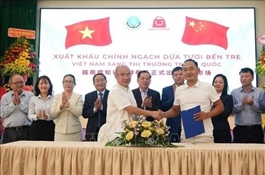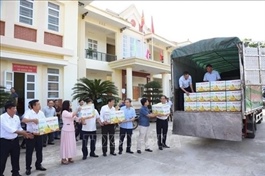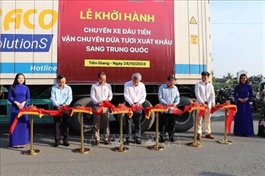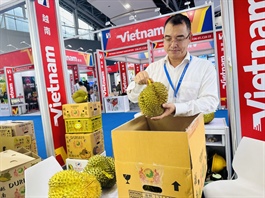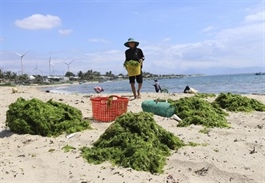Cashew industry calls for amending tough decree on import safety
Cashew industry calls for amending tough decree on import safety
Decree 15, which aims to ensure the food safety of imported food products, creates problems for the cashew industry, particularly for companies importing raw cashew from Africa, a seminar heard in Bình Dương Province on Monday.
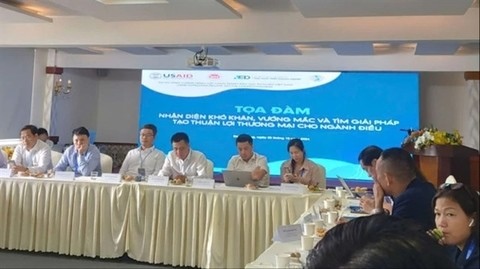
Delegates at the seminar on Identifying Difficulties and Seeking Solutions to Facilitate Trade for the Cashew Industry in Bình Dương Province on October 28. — Photo courtesy of sggp.org.vn |
At "Identifying Difficulties and Seeking Solutions to Facilitate Trade for the Cashew Industry" held by the Vietnam Cashew Association (VINACAS), insiders and experts called on the Government to amend it.
Việt Nam has been the world's largest exporter of processed cashew for the last 20 years, accounting for 80 per cent of global exports, according to VINACAS.
But the industry still faces significant challenges, it said.
Bạch Khánh Nhựt, VINACAS’s permanent deputy chairman, said Decree 15 issued in 2018 has Article 14 that requires plant-based food imports to originate from countries or territories that have a food safety control system meeting Việt Nam’s standards and the countries to have approval for exporting to it.
But many African countries, which supply 70 per cent of Việt Nam’s raw cashew, are not included in the list, he said.
This means all cashew imported from Africa can only be used for export and not sold in the domestic market for any reason.
It means businesses that import a large quantity of raw cashew but face some difficulties and need to liquidate the stocks can’t sell them to local businesses.
These stocks thus cannot be mortgaged with banks either, he added.
Businesses at the seminar said while appropriate to ensure food safety, the requirement is also a "shackle" on production and business activities, making it difficult for them to adjust operations in response to market fluctuations.
Many are facing the risk of bankruptcy due to large inventories that cannot be sold, they said.
Some are forced to sell clandestinely in the domestic market, violating regulations just to keep their operations running, they said.
They called on authorities to ease restrictions on resale, allowing small businesses to sell raw materials to larger companies in the domestic market, especially during periods of significant global market volatility.
Attendees, especially legal experts, also proffered several solutions.
Lawyer Lê Trọng Thêm suggested that the Ministry of Agriculture and Rural Development should include African nations in the list of countries and territories approved for the export of plant-derived foods to Việt Nam to ease the difficulties faced by businesses and enable the industry’s growth because it could take African countries long to complete the requisite procedures.
Đậu Anh Tuấn, director of the Việt Nam Chamber of Commerce and Industry’s legal department, underscored the need for a selective application of the decree to some key export sectors.
Nhựt said VINACAS would petition the Ministry of Agriguture and Rural Development and relevant authorities to promptly make adjustments of the decree to alleviate the difficulties faced by businesses.







